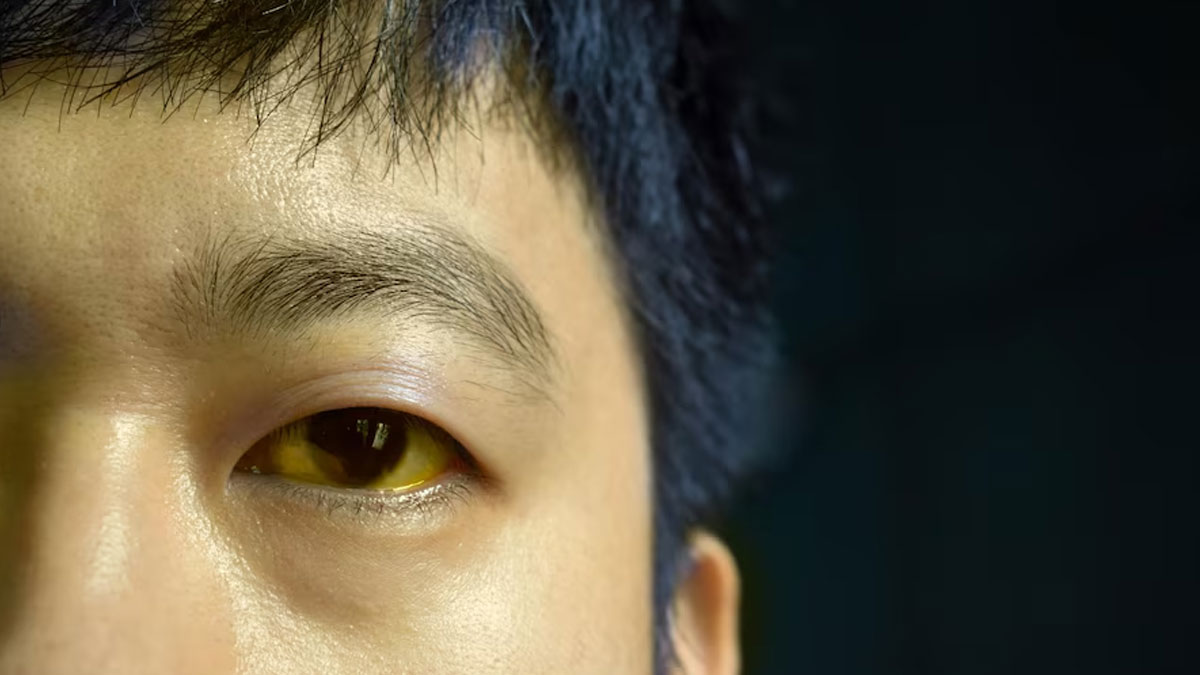
In most cases, when the whites of the eyes turn yellow, it indicates the presence of excess bilirubin in the body, a yellow substance that forms when Red Blood Cells break down. This is most common in a condition called jaundice, which also leads to a yellowish appearance of the skin.
Table of Content:-
However, not all people with yellow eyes have jaundice. In fact, there are other underlying medical conditions that can lead to the symptom. In this article, we will learn more about these causes.
Also Read: From Hepatitis To Cancer, Health Conditions That Can Cause Yellowing Of The Skin Or Jaundice
Liver Disease

The liver helps with several bodily functions. One of them is to filter out bilirubin, which is a yellow waste product from broken-down RBCs. However, suffering from a liver disease can hamper this bodily process. This leads to a buildup of bilirubin in the bloodstream, which then travels to your skin and eyes, leading to a yellowish appearance.
Liver diseases, like hepatitis, can cause yellowing of the eyes. It results from various factors, including viral infections, alcohol abuse, or autoimmune diseases.
Gallstones
The gallbladder is the sac located under the liver, responsible for storing and concentrating bile produced by your liver.
Gallstones are hard, painful masses that can block the bile ducts and prevent the bile from reaching your intestines. This trapped bile includes bilirubin, the same waste product that causes yellowing in jaundice. Due to the blockage, bilirubin re-enters the bloodstream and builds up, eventually turning your skin and the whites of your eyes yellow.
Pancreatitis

The pancreas is an organ that is situated deep within the stomach and plays a vital role in digestion and in regulating blood sugar levels. Normally, the pancreas rests peacefully next to the bile duct, which carries the digestive fluid called bile from the liver to the intestines. However, when pancreatitis hits, which is characterised by inflammation and swelling of the pancreas, the organ can put pressure on the bile duct, partially or completely blocking bile flow, which contains bilirubin. Again, when bilirubin builds up in the bloodstream and overflows into the skin and eyes, it can cause them to turn yellow.
Carotenemia
Unlike other causes of yellow eyes, carotenemia is a condition that is not linked to liver problems. Instead, it is caused by beta-carotene, a pigment abundant in orange fruits and vegetables like carrots and sweet potatoes.
When you eat excessive amounts of beta-carotene-rich foods, your body is unable to process it all at once, which is why the excess amounts get stored in your skin, especially areas like palms and soles, and can also cause a yellowish tinge in the whites of your eyes.
But unlike jaundice, it doesn't affect the deeper white part of your eyes itself. Instead, it colours the outer layer that rests on top. The good news is that this yellowish appearance is usually mild and fades once you cut back on beta-carotene-rich foods.
Certain medications

It is important to note that certain medications can also cause yellowing of the eyes as a side effect. These include drugs that affect the liver or cause hemolysis, a condition associated with the destruction of RBCs.
For instance, some antibiotics or cholesterol-lowering drugs might slightly impair the liver's ability to remove bilirubin from the bloodstream, resulting in high bilirubin levels and causing yellow eyes.
Note: If you experience yellowing of the skin or the whites of the eye, it is important to consult your doctor to determine the underlying cause and decide the course of treatment.
[Disclaimer: This article contains information provided by an expert and is for informational purposes only. Hence, we advise you to consult your expert if you are dealing with any health issues to get the necessary treatment.]
Also watch this video
How we keep this article up to date:
We work with experts and keep a close eye on the latest in health and wellness. Whenever there is a new research or helpful information, we update our articles with accurate and useful advice.
Current Version